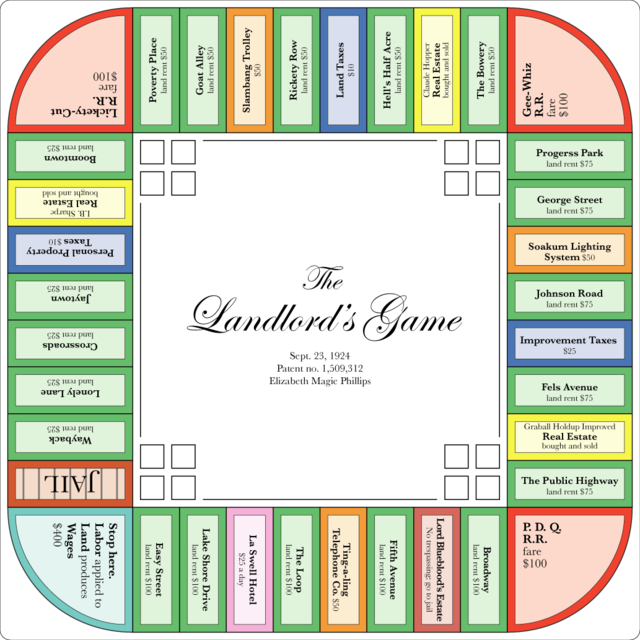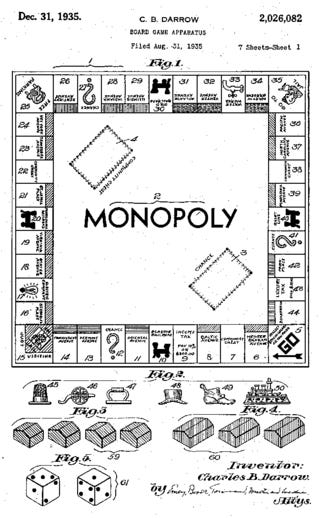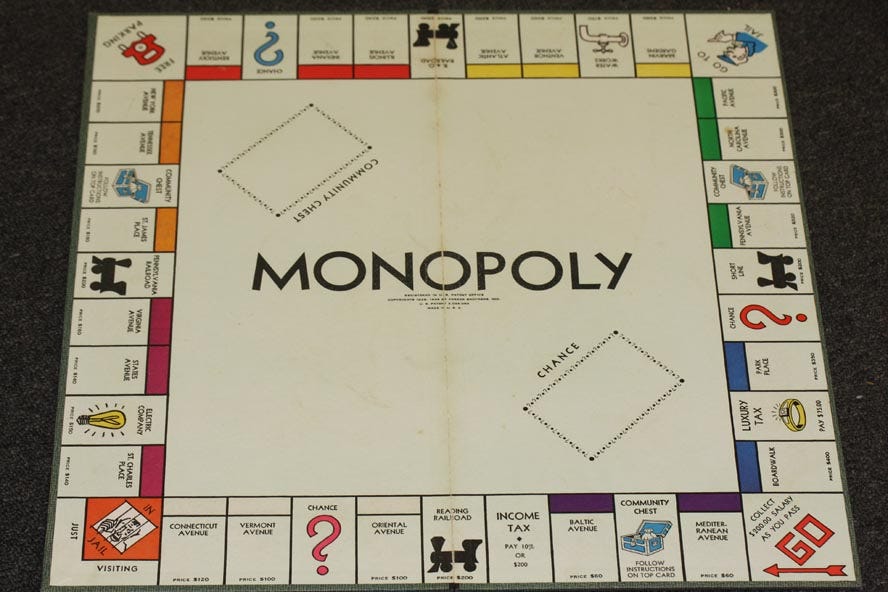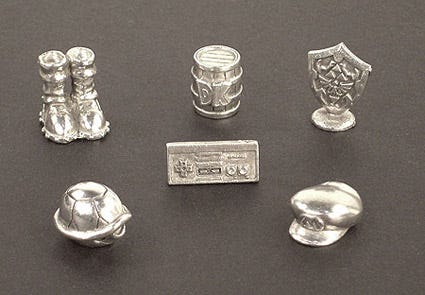Real estate has never been an interest for me. Therefore the worst form of nightmare is being dragged into a game of Monopoly, which seriously I never cared if I win or lose. It is nothing but just to pass the time. The only thing I like about the game is the design of the board, and its play money, plus the “chance” cards. The risk is always taking the chance, and I think real estate is all about planning, and then taking a chance that a specific neighborhood will move towards your direction – financially speaking. There is something about the great depression in the United States which inspired people to play with ‘imaginary property’ that they don’t actually have. Charlie Darrow is the inventor of “Monopoly,” but there were other people at the time playing their own version of this game, or at least with the subject matter regarding losing and gaining property.
“The Landlord’s Game, ” patented in 1904 by Elizabeth Magie, is the inspiration for “Monopoly.” The oddity of the game is that it demonstrated the ill economic effects of the land monopolist and the use of land value tax as a remedy of them. So in a sense, it is very much an anti-capitalist game, while “Monopoly” is about being greedy and making yourself wealthy through one’s greed. What I find interesting is how board games reflect on life, and even writers like Guy Debord became devoted to the board game and actually invented such a game called “Le jeu de la Guerre (A Game of War). More likely he wanted this game to be just as popular as “Monopoly,” but I think that is impossible due to the animal-like desire for land and how much wealth can come from that property. The horror show aspect of real estate is the fact that it often destroys creativity and a form of currency. Art can be defined as cinema, literature, dance, theater, and visual - but I also think a real estate is an art form as well, with respect to retail shops and how it affects a neighborhood.
“Monopoly” and “The Landlord’s Game” are both fascinating. The latter exposes the corruption of the landlord, while “Monopoly” exposes a need to obtain wealth at all costs. A board game basically imitates real life, because life and politics are nothing but a board game, but played out in real time, with actual results. I’m sure the Israelis are looking at the Palestinian issue as a board game. They must have a large table or a computer screen, where they can map out the territory and imagine it as a 3D image, where they can enter and then disappear by will. The same for Iraq and any other country involved in a military narrative. Then on top of it, they monitor reactions from the media - both from social networks to TV talking heads. As well as presidential elections or when there is one side fighting against another side. All of it is deemed to be a board game. The problem is one gets sucked into a set of rules of not of their own making. There is this, and there is that. Surely there must be a third option?






